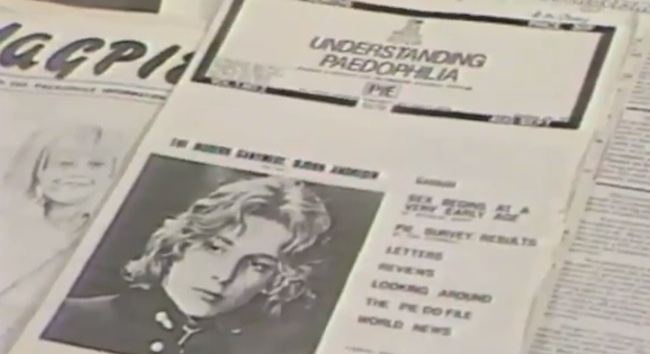Paedophiles like Jimmy Savile are ok: it’s the quality of the abuse that matters
JON Henley writes about his Brave New World in the Guardian:
In 1976 the National Council for Civil Liberties, the respectable (and responsible) pressure group now known as Liberty, made a submission to parliament’s criminal law revision committee. It caused barely a ripple. “Childhood sexual experiences, willingly engaged in with an adult,” it read, “result in no identifiable damage … The real need is a change in the attitude which assumes that all cases of paedophilia result in lasting damage.”
It is difficult today, after the public firestorm unleashed by revelations about Jimmy Savile and the host of child abuse allegations they have triggered, to imagine any mainstream group making anything like such a claim. But if it is shocking to realise how dramatically attitudes to paedophilia have changed in just three decades, it is even more surprising to discover how little agreement there is even now among those who are considered experts on the subject.
Bizarre stuff. The NCCL was once able to call on the support of Harriet Harman, its legal officer. The Labour MP and former Minister for Women and Equality has called for an independent inquiry into the Jimmy Savile scandal. She is aghast that victims felt “they couldn’t complain”. Harman joined the NCCL in 1978, two years after is comments that sex with children might be ok.
Speaking on BBC Radio 4’s Today Programme, Mrs Harman said:
“What is necessary is that those who have had great pain and suffering – to be abused as a young person, and to feel trapped with your guilt and disgust and not able to speak out – for years they weren’t able to speak out about it. And we have to understand why for years they had to live with it on their own with all the difficulties it has caused them without being able to speak out, or they did speak out and they weren’t believed. One of the really key questions that we all need to understand and learn lessons from is why did so many people feel that they couldn’t complain, that they weren’t able to complain, or why did those people who did complain, why were they not believed. If ever there was something that needs an independent inquiry, [it is] serious sexual offences against many, many children across a range of institutions. If that’s what an independent inquiry is not for, I don’t know what is.”
In 1977, the NCCL was quoted:
“NCCL has no policy on [the Paedophile Information Exchange’s] aims – other than the evidence that children are harmed if, after a mutual relationship with an adult, they are exposed to the attentions of the police, press and court,”
One other who sat on the board of the NCCL was Patricia Hewitt. The secretary of the NCCL from 1974 to 1983 was once Secretary of State for Health. She oversaw the NHS. Savile liked the NHS. Hewitt is godmother to one of Harman’s children.
So. Why didn’t children speak out back then?
Back to the Guardian:
A liberal professor of psychology who studied in the late 1970s will see things very differently from someone working in child protection, or with convicted sex offenders. There is, astonishingly, not even a full academic consensus on whether consensual paedophilic relations necessarily cause harm.
Maybe the children should be the experts?
So what, then, do we know? A paedophile is someone who has a primary or exclusive sexual interest in prepubescent children. Savile appears to have been primarily an ephebophile, defined as someone who has a similar preferential attraction to adolescents, though there have been claims one of his victims was aged eight.
But not all paedophiles are child molesters, and vice versa: by no means every paedophile acts on his impulses, and many people who sexually abuse children are not exclusively or primarily sexually attracted to them. In fact, “true” paedophiles are estimated by some experts to account for only 20% of sexual abusers. Nor are paedophiles necessarily violent: no firm links have so far been established between paedophilia and aggressive or psychotic symptoms. Psychologist Glenn Wilson, co-author of The Child-Lovers: a Study of Paedophiles in Society, argues that “The majority of paedophiles, however socially inappropriate, seem to be gentle and rational.”
…
Some academics do not dispute the view of Tom O’Carroll, a former chairman of PIE and tireless paedophilia advocate with a conviction for distributing indecent photographs of children following a sting operation, that society’s outrage at paedophilic relationships is essentially emotional, irrational, and not justified by science. “It is the quality of the relationship that matters,” O’Carroll insists. “If there’s no bullying, no coercion, no abuse of power, if the child enters into the relationship voluntarily … the evidence shows there need be no harm.”
…
A Dutch study published in 1987 found that a sample of boys in paedophilic relationships felt positively about them. And a major if still controversial 1998-2000 meta-study suggests – as J Michael Bailey of Northwestern University, Chicago, says – that such relationships, entered into voluntarily, are “nearly uncorrelated with undesirable outcomes”.
Experts. Who will save us from the experts?
Oh brave new world…
Posted: 3rd, January 2013 | In: Politicians, Reviews Comment | TrackBack | Permalink



